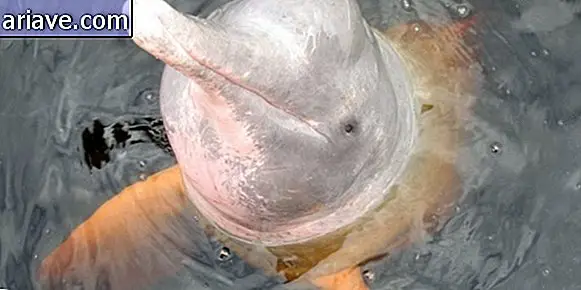Research shows that fish also have 'trolling' behavior
The habit of outsmarting a weaker (or just distracted) individual may not only be human. Some species of fish may also adhere to the famous “trairage” with their peers, providing a way to throw one of them at the enemy to distract him for more time to escape.
The discovery of this fact was made by chance by researchers Robert Young, from the University of Salford, and by the Brazilian Vinícius Goulart, from the Pontifical Catholic University of Minas Gerais. The two professionals were investigating ways to prevent fish from entering the machinery of hydroelectric plants when they discovered this behavior of aquatic beings.
Treacherous action
The fish studied are from Astyanax species, better known as Lambari and very common in lakes, rivers and dams in Brazil. In this latter location, fish cause problems in plants upon entering turbines and machines. And it was in order to solve this problem that the researchers set out for some studies that revealed another facet of lambarizinhos.
For the tests, the researchers organized evidence of predator attacks and found that this South American species always targeted one unlucky fish that was hit by another with a collision followed by a bite.
This form of bullying causes other fish to attack him as well, leaving the chosen weak and intimidated, which makes him perfect prey for the predator and frees the other fish for escape. An attitude that researchers have identified as admittedly selfish, but for survival.
Tests

The researchers divided the fish into eight groups of eight “participants, ” ensuring that they were all the same size. They were then exposed to three mock attacks and one control.
In one test, the researchers mimicked a predator attack, bringing a resin replica of a hunting fish called - coincidentally - a traitor to the lambaris.
In the other, the fake predator was hidden in a plastic tube to simulate an ambush. In the third mock test, a heron was used to try to peck fish out of the water. Finally, the control experiment involved a plastic box that was gently placed in the fish tank.
Water bullying
The results showed that when faced with the predator attack, the lambari "elected" a fish in their group as a target for others to pursue. One of them hit the target and bit it. With that, the unlucky one fled and swam alone for a few seconds before returning to the group. This makes it an easy bait for the enemy.
However, in other tests, including control, this response did not happen. The researchers say it is because birds and ambush predators do not target the weaker members of the school. In such cases, they attack any fish that are closest to them. Thus, in these situations, the lambari sees no advantage in attacking the like.











